Horror classic Clock Tower's Windows 95 port jabbed a giant pair of scissors through my rose-tinted glasses
Maybe I should've left this one dead and buried.
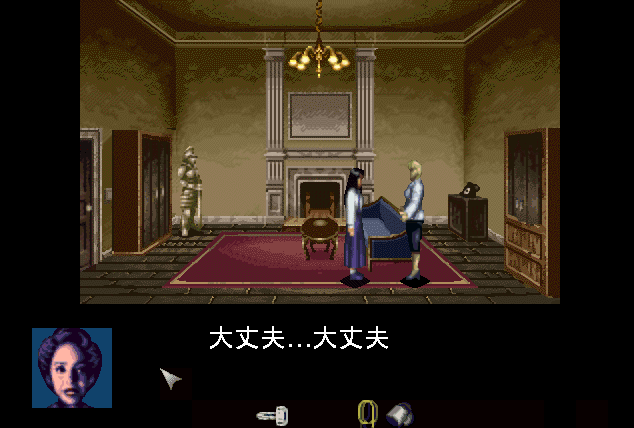
Pasokon Retro is our regular look back at the early years of Japanese PC gaming, encompassing everything from specialist '80s computers to the happy days of Windows XP.
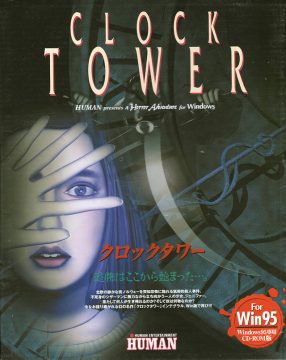
What was the best format to play Clock Tower, a suspenseful point-and-click adventure packed with spine-chilling chase sequences, surprise cannibalism, and heaps of death and graphic violence on back in 1997? Was it with a controller on a painfully slow Nintendo console most famous for hosting mushroom-powered plumbers? Or was it on a powerful PC running Windows 95, the natural home of crisp pixel art and mature mouse-driven escapades?
That's right. It was definitely… it was definitely the SNES. I know, I know. It doesn't feel right—but it is true.
This old PC version of Clock Tower seems to be the rarest port Human's horror game ever had, and as such took a mildly irritating amount of time, effort, and money to track down. (It's completely unrelated to the recent Rewind release from WayForward, which is the wonderful SNES original with some game-enhancing extras and modern QoL features on top). When I finally found a Windows 95 copy, I expected something luxurious and exciting in return for my blind enthusiasm for niche ports of old horror games. After all, PCs—even really old ones—are just better, right?
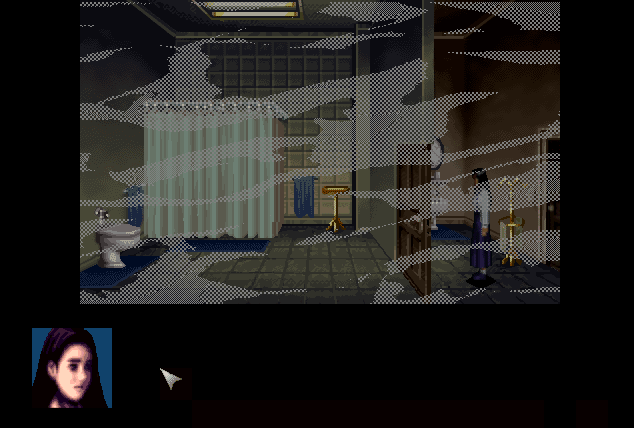
Instead I got a rather poor CG intro starring the world's least interesting clock tower. More offensive: I had to suffer through almost embarrassingly crude dithered mist effects in place of the original's swish mood-setting transparencies shortly after I started to play.
I was so annoyed by that sorry excuse for an atmospheric effect I started poking around in the game's files, convinced I'd encountered some sort of rendering error or ancient technical issue. I hadn't, and unfortunately I could prove it as Clock Tower conveniently stored all of its graphics as plain old BMPs. It looked that way because it was supposed to, inconsistent pixel sizing and all.
The cutscene artwork found in the Windows version of Clock Tower is of slightly higher quality than it was in the original, so that's got to be some sort of positive, even if I did have to place screenshots from both versions of the game side by side to spot the difference. And… something beyond a crude pixel-doubling has happened to the regular sprites and backgrounds too. They look like they've been subtly redrawn, resulting in something that's the worst kind of better—technically better. The increased resolution doesn't actually lead to more detailed environments or people, just a new smudgy softness that wasn't there before and some cleaner lines on the edges of tables and carpets.
The biggest gaming news, reviews and hardware deals
Keep up to date with the most important stories and the best deals, as picked by the PC Gamer team.
Thrilling.
The slightly expanded colour palette only seems to introduce dithering where there were once clean flat colours. Fantastic. The overall effect resembles a photocopy of an incredible painting, something the same and not quite right all at once.
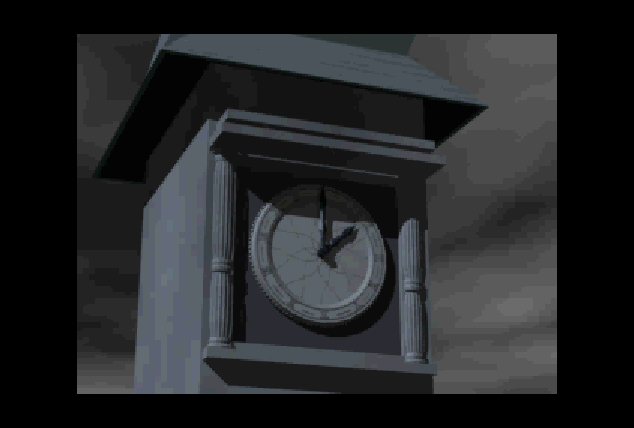
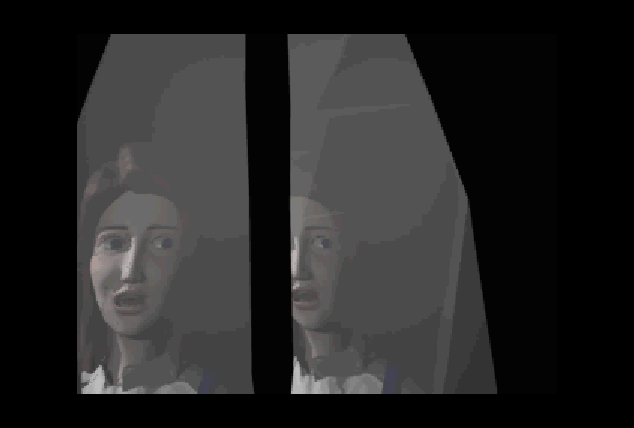
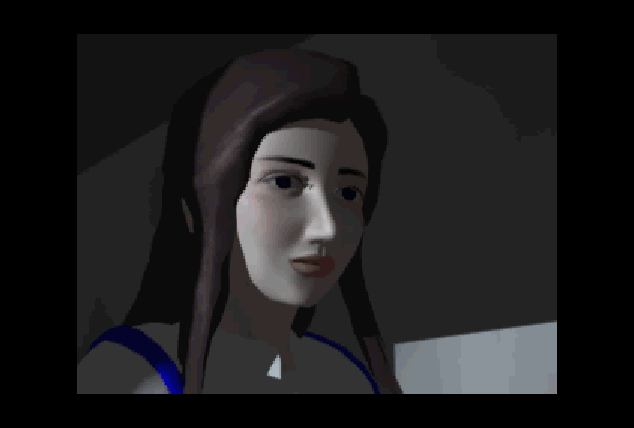
Of course back in the '90s, PC gaming could rarely guarantee you'd be playing the best versions of its own games—DOS classic MechWarrior getting soundly outdone by its Japanese computer remake springs to mind. And you definitely couldn't count on flawless ports of games brought in from elsewhere (although some companies still managed it), so perhaps it was unrealistic of me to expect too much of this one. Sometimes PC remakes slipped up in the days when dedicated gaming hardware was so different. Heck, sometimes they still do.
Besides, it's not all doom and gloom. It's still Clock Tower, for starters—and that means it's still one of the most enjoyable ways to send your heart rate through the roof while dashing around a grimy mansion filled with weird traps, locked doors, and shocking revelations. It's not a game that can be completely mastered, as several key item locations and even a few whole rooms are randomised at the beginning of every new game. I could play this forever and still only be able to at best make educated guesses about where I needed to go next or what I'd find when I walked through a particular door.
And although this PC port is lacking in many of the ways I hoped it would shine, it's not a bad port. It doesn't outright mangle anything crucial like Final Fantasy 7 did a year later with its mostly hideous MIDI soundtrack, and the mouse controls—something the original didn't have at all—are just perfect: click to walk, double-click to run, right-click to stop, click on things to interact with them. It just makes sense. Better still, by some small miracle the game just works on Windows 11 without any tweaking, patches, or mystic rituals whatsoever, and that means I can have pixelled spookytimes sitting in a small window on my desktop, ready to dip into whenever I've got a minute going spare.
Running away from a murderous lunatic may not be everyone's idea of a good time, but it's still better than mindless doomscrolling my social media feeds.
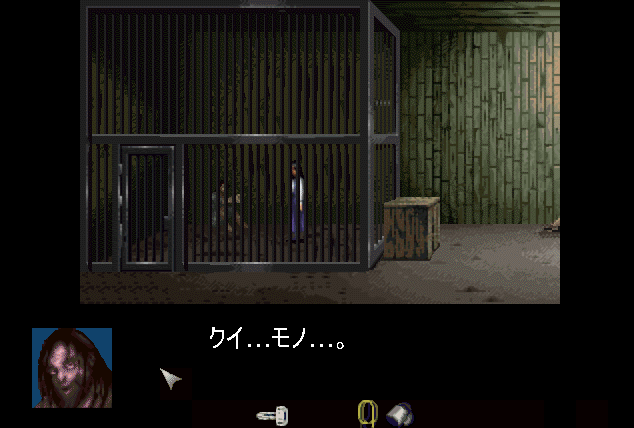
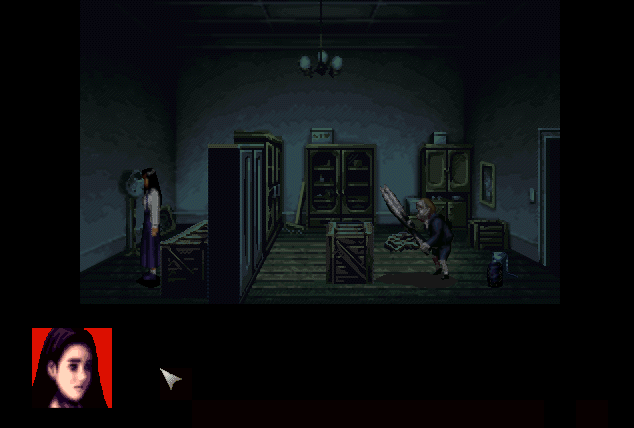
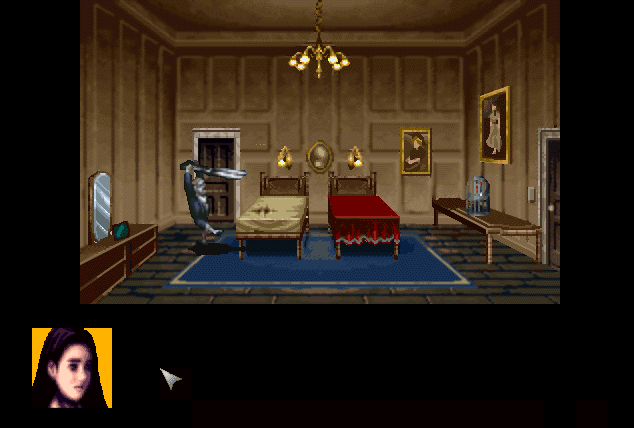

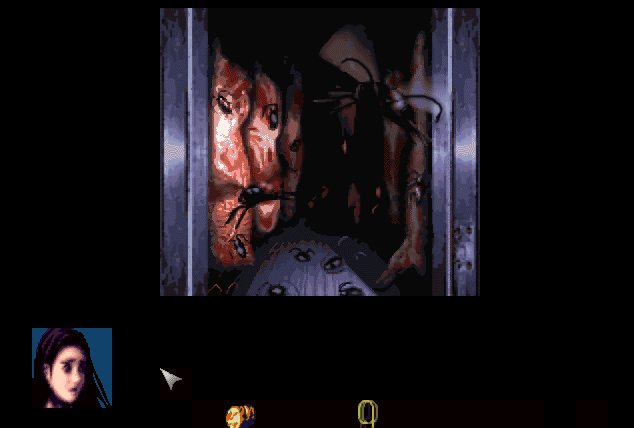
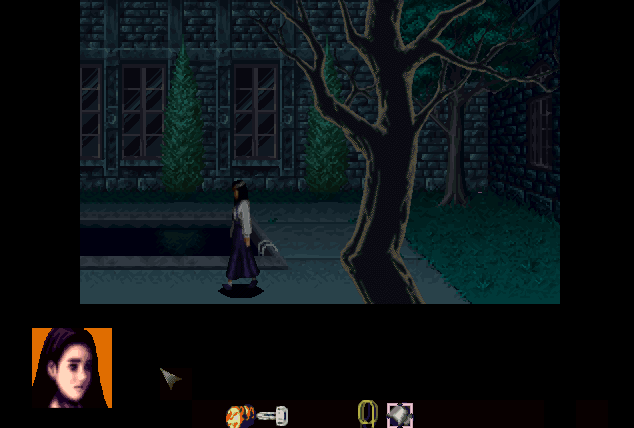
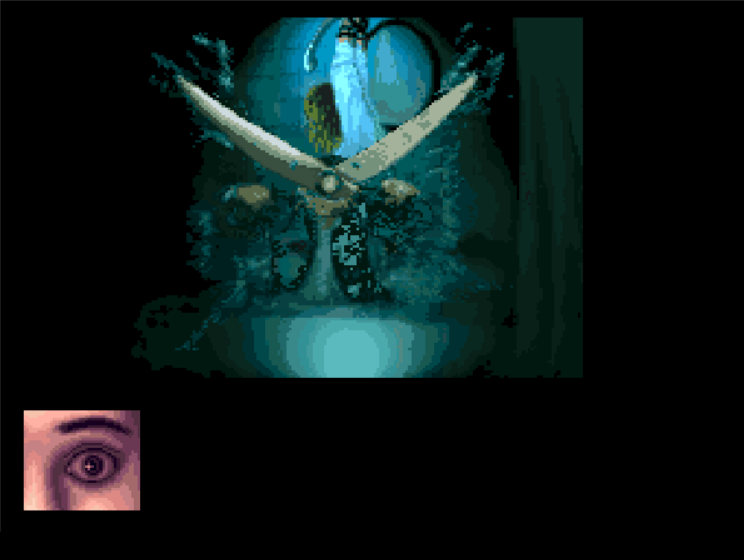
Before tracking down such a rare disc I thought I was going to have a good time with a premium version of a great game; instead I got a heavily dithered reminder of just how far we've come with PC ports in general. These days I can expect most games to turn up on time and look at least as good as they do everywhere else, and when we do get retro revivals they're more often than not pixel-perfect affairs interwoven with illuminating extras. In contrast this wasn't the best version of Clock Tower available in the '90s, and these days it's not even the best version of Clock Tower available on PC.
But at the time it would have been infinitely preferable to no Clock Tower at all, and here in the cold hard light of 2024 it's an unvarnished and most importantly, educational, slice of history stored on a single CD-ROM.

When baby Kerry was brought home from the hospital her hand was placed on the space bar of the family Atari 400, a small act of parental nerdery that has snowballed into a lifelong passion for gaming and the sort of freelance job her school careers advisor told her she couldn't do. She's now PC Gamer's word game expert, taking on the daily Wordle puzzle to give readers a hint each and every day. Her Wordle streak is truly mighty.
Somehow Kerry managed to get away with writing regular features on old Japanese PC games, telling today's PC gamers about some of the most fascinating and influential games of the '80s and '90s.

